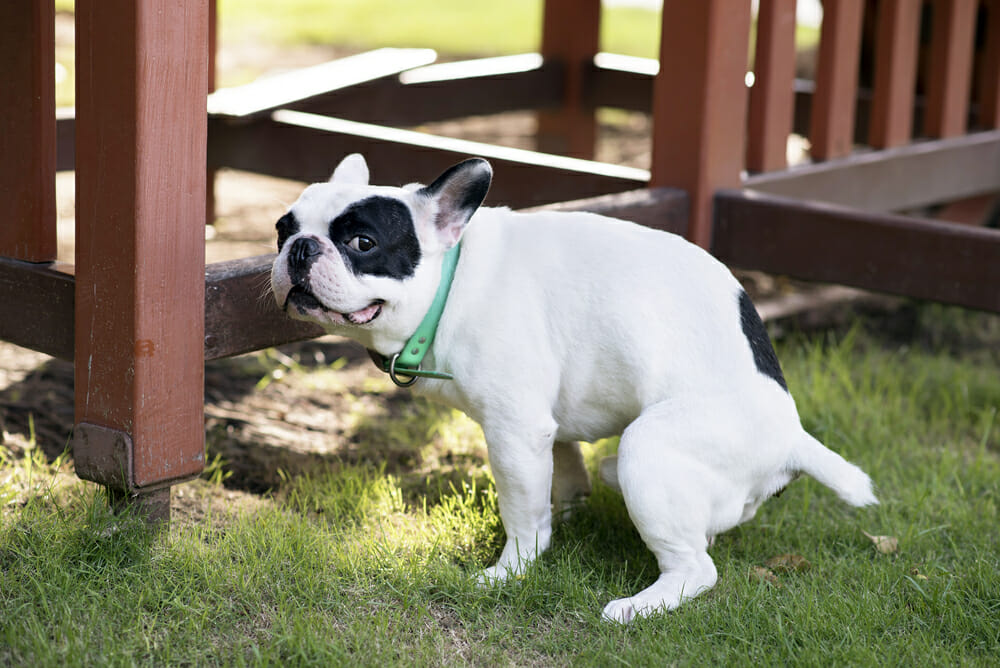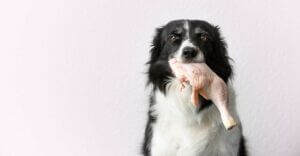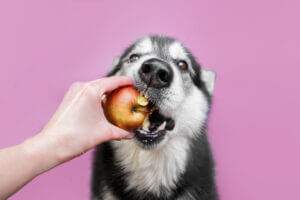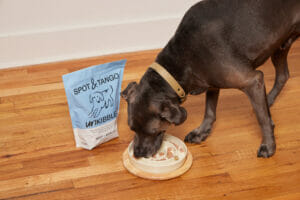Does your pup ever look up at you while they poop? Ever wondered why that might be? While it might have made you feel a little weird, there are some pretty cute explanations for why they might be acting the way they do (and no they’re not trying to make it awkward!)!
Check out some of our favorite psychology explanations for why dogs act the way they do.
Why does my dog look at me when they poop?
There are two main reasons why your dog may look at you when they poop, and it all comes down to one thing… vulnerability! Much like how we feel rather vulnerable when we’re taking care of our own business, your dog experiences a similar emotion. You know that feeling you get when someone tries to open that locked bathroom door? Yep, that’s how your dog feels! If your dog is a recent addition to your home, they may be watching you to make sure they are safe and you are not a threat while they are in an exposed position. But even more common, if you have a strong relationship with your dog, they are likely watching you to monitor your behavior and pick up on any changes to the environment they should be aware of. In other words, they’re looking to you for protection! We love our pups so it’s nice to know that they rely on us and put their trust in us when they’re feeling vulnerable!
My dog leans against me when they’re sleeping– do they just like hogging the bed or do they have to poop?
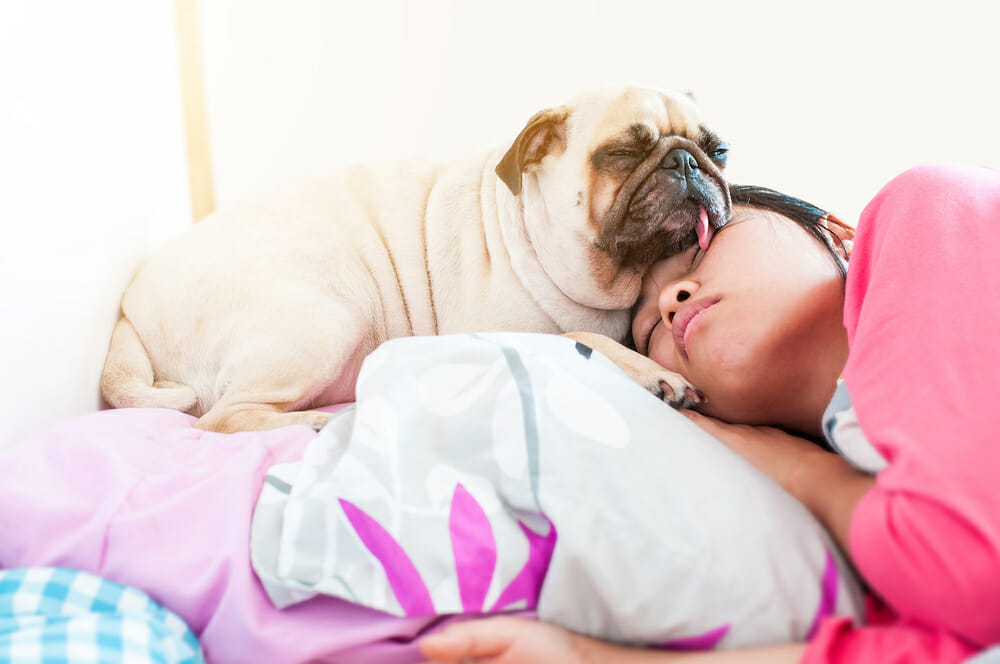
While they might like stretching out across your bed, it’s actually much cuter than that! This behavior is called pillowing and is exactly what it sounds like; the animal using us as a pillow while they rest! Who knew we were that comfy? Sleeping is the ultimate vulnerable position so this behavior is typically reserved for individuals they feel closest to. So take the big compliment and settle in with your pup for a great nap, the social bonding of pillowing goes both ways after all! I know I can always use a good excuse to cuddle with my pup. 😃
Social dynamics
While people sometimes think that you need to be the “alpha” to be a good dog parent, that’s not true! The myth of the “alpha” stems from one study in the 1930’s conducted by Behaviorist Rudolph Schenkel and scientists have been trying to correct this misinformation ever since. Pups don’t constantly fight over who has the priority access to resources (this is what “alpha” actually means). Instead, dogs exist in families where the adults meet, court, have puppies, and the older pups (adolescents) help raise their younger siblings before moving out on their own! So think of your multi-species family just the same. Be a clear but kind parent to your dog. Set them up for success with appropriate and understandable expectations, and show them they’re making smart choices with lots of love and rewards! (We love positive reinforcement).
Why does my dog lick me all the time?
We love to call them kisses, but licking can mean a lot of different things! Dogs of course will engage in some social grooming both within the species and even across species (ever see a cat tolerate a dog’s grooming attempt?). But licking can also be a sign of appeasement, stress, anxiety, or even a compulsive behavior! Everything exists on the spectrums of intensity, duration, frequency, and context. So keep an eye out on your pups for excessive or frantic licking and don’t just write it off as a form of “intense love”. Unless you happen to have something tasty on yourself…. If that’s the case, your dog is just looking for a snack that you left behind!
How does my dog always know to run to the door when it’s time for my partner to come home?
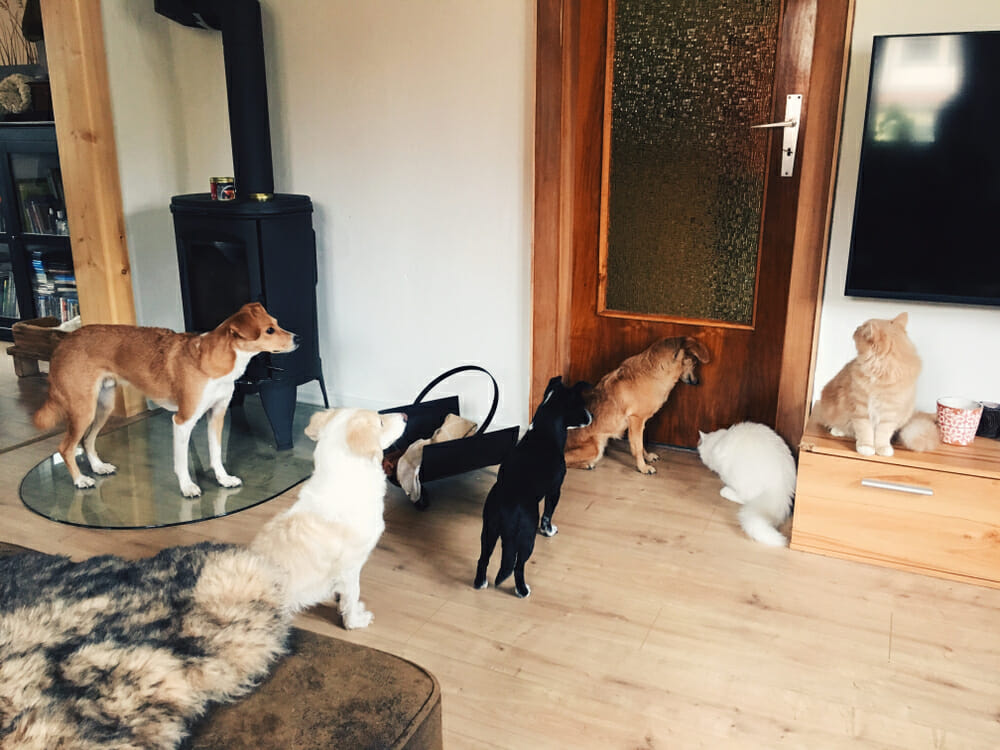
Dogs don’t sense chronological time like we do. Indeed there is still a lot of research being done on how animals perceive time. Current research suggests that animals cannot consciously “time travel” through their memories and pull up specific episodic memories. Similar to how a child under four will learn things like crawling, walking, & talking – without remembering the specific moment when they learned the skill. Instead dogs are thought to use fluctuations in biological rhythms, instincts, hormones, body temperature, and even sensory input like light & smell differences to gauge when “it’s time” for specific daily events to occur. So no, they’re not predicting the future but I know I still feel pretty special when they’re already waiting by the door to greet me!
I know if they ever invent a machine so I can speak to my dog, I will definitely be excited to know exactly what they’re thinking but for now, I hope these help you understand a bit more about your pup and why they act the way they do!


